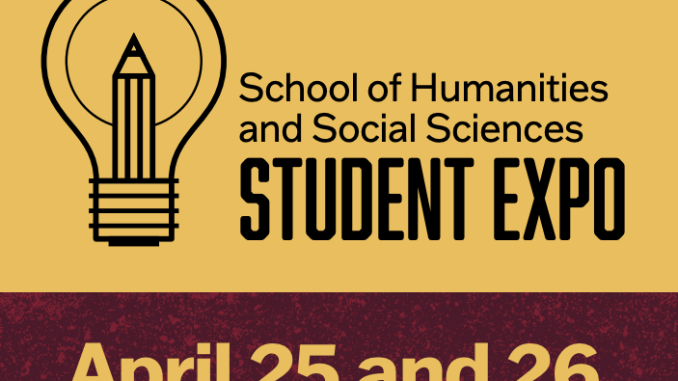
By Serin Sarsour
Brooklyn College’s School of Humanities and Social Sciences held a two-day student exposition on Apr. 25 and Apr. 26 to showcase the work and research students in the HSS program have done. Ranging from History to English to Political Science and Africana Studies, there were a total of 14 zoom and in-person events covering a diverse array of topics.
The first of the 14 events was led by History Professor Philip Napoli in which his HIST.1101 students presented interviews that they conducted to represent the experiences people encountered during the COVID-19 pandemic.
“We’ve been talking about a couple major themes in the class, [such as] the historical processes that shaped the contemporary world. I’m really interested in the way the past is connected to the present,” said Professor Napoli, explaining what his course is all about.
During the Zoom presentations, Professor Napoli’s students revealed how the pandemic has impacted their interviewees in several ways, including the transition to socializing online, losing loved ones, being stuck at home at all times, and becoming closer with family members during quarantine.
Professor Napoli also hosted an event where students from the History, Philosophy, and Judaic Studies departments at BC were able to share the undergraduate research they have been conducting throughout the 2021-2022 school year.
One of the students, Alyssa Rodes, did her research on the surprising revelation that there was once a Jewish population in small-town Goshen, Indiana.
Rodes shared that there was an apparent mix of Eastern European and German Jewish people present in Goshen by the 1850s, both Orthodox and traditional. There were “two family groups [that] formed the core of the community.” These families made important contributions and made imprints on Goshen as they opened a variety of businesses in the town, one being a clothing store.
The Jewish population in Goshen went up from 125 in 1878 to 139 in 1907. However, it then drastically declined to 51 Jewish people in 1927 as Jewish people began expanding beyond Goshen and migrating to places like Michigan.
Although Rodes is actually a Christian, she has always had a fascination for Judaism and was shocked to find out that Jewish people actually once resided in the small-town she grew up in.
Later on in the expo, Professor Rebecca Boger, BC’s Urban Sustainability Director who also teaches Earth and Environmental Sciences, hosted an event that celebrated the research, community involvement, and accomplishments that the Urban Sustainability students and alumni have done.
Philosophy Professor Michael Menser is also a member of the Earth and Environmental Sciences doctoral faculty, and stepped up to the podium in the Gold Room at BC’s Student Center to further discuss the program and a new sustainable urban gardens course that was first taught last fall.
“This course has got a hands-on component to it, as well as an in-the-class component,” said Professor Menser. “So you actually learn how to plant seeds, how to cultivate those seeds, how to water the plants. That means being outside, it means also taking advantage of our greenhouse on campus. We have a new garden space that’s next to the Performing Arts Center.”
A BC alumna named Alison Derevensky also spoke at the event. After graduating from BC in 2019, Derevensky started an internship at Binghamton University to do a graduate assistantship while working to receive her double master’s degree there.
Additionally, Derevensky had an internship at BlocPower where she currently works and plans to continue working after graduation.
“They’re a New York City based green energy company that’s working to electrify buildings across the country,” she said.
BlocPower does this by installing electric heat pumps in buildings, which are somewhat replacements for old heating systems.
